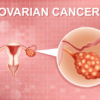Ayurvedic Remedies for Dandruff: Embracing Nature’s Solutions for Healthy Scalp
Ayurvedic Remedies for Dandruff: Embracing Nature’s Solutions for Healthy Scalp is a common yet often frustrating condition that affects many people globally. Characterized by flaking and itching of the scalp, it can lead to self-consciousness and discomfort. While various treatments exist, Ayurveda, the ancient system of natural healing from India, offers a holistic approach to addressing dandruff. This blog explores Ayurvedic remedies for dandruff, focusing on natural treatments, dietary recommendations, and lifestyle changes to promote a healthy scalp and overall well-being.
Understanding Dandruff: Ayurvedic Perspective

In Ayurveda, dandruff is often considered a result of an imbalance in the body’s doshas, which are the three vital energies believed to govern physiological and psychological processes. The doshas—Vata, Pitta, and Kapha—must be in harmony for optimal health.
Pitta imbalance can lead to excess heat and inflammation, contributing to scalp issues such as dandruff. Ayurvedic treatment aims to restore balance to the doshas, promote scalp health, and alleviate symptoms through natural means.
Ayurvedic Remedies for Dandruff
- Herbal Oils Ayurvedic medicine often utilizes herbal oils for their therapeutic properties. Some effective oils for dandruff treatment include:
- Neem Oil: Neem is renowned for its anti-fungal and anti-inflammatory properties. It helps soothe the scalp, reduce itching, and combat dandruff-causing fungi. Massage neem oil into the scalp, leave it for about 30 minutes, and then wash it out with a mild shampoo.
- Coconut Oil: Coconut oil is a natural moisturizer with antimicrobial properties. It helps in hydrating the scalp and reducing dryness, which is often a contributing factor to dandruff. Apply warm coconut oil to the scalp, leave it for at least an hour, and then shampoo your hair.
- Brahmi Oil: Brahmi is known for its calming effects on the nervous system and its ability to strengthen hair roots. It also helps in reducing scalp inflammation and dandruff. Use Brahmi oil as a massage oil for the scalp.
- Herbal Shampoos and Masks Herbal shampoos and masks are an integral part of Ayurvedic hair care. Some beneficial ingredients include:
- Aloe Vera: Aloe vera is known for its soothing and moisturizing properties. It helps in reducing scalp irritation and dandruff. Apply fresh aloe vera gel to the scalp and leave it for about 30 minutes before rinsing.
- Bhringraj: Bhringraj, also known as Eclipta alba, is often used in Ayurvedic treatments for hair health. It helps in rejuvenating the scalp, reducing dandruff, and promoting hair growth. Use a shampoo containing Bhringraj or apply a paste made from Bhringraj powder to the scalp.
- Hibiscus: Hibiscus flowers and leaves are rich in vitamins and antioxidants. They help in nourishing the scalp and preventing dandruff. Make a paste of hibiscus leaves and apply it to the scalp for 30 minutes before washing.
- Dietary Recommendations Ayurveda emphasizes the importance of diet in maintaining overall health and balance. Incorporating certain foods into your diet can help address dandruff from the inside out:
- Cooling Foods: Since dandruff is often associated with Pitta imbalance (heat), consuming cooling foods can help. Include foods like cucumbers, melons, coconut, and leafy greens in your diet.
- Hydrating Foods: Dehydration can exacerbate scalp dryness and dandruff. Drink plenty of water and consume hydrating foods such as soups, smoothies, and fresh fruits.
- Anti-inflammatory Foods: Foods with anti-inflammatory properties, such as turmeric, ginger, and garlic, can help reduce inflammation and support scalp health.
- Lifestyle Changes Ayurveda also suggests lifestyle adjustments to improve scalp health and prevent dandruff:
- Stress Management: High stress levels can contribute to dandruff. Practice stress-reducing techniques such as yoga, meditation, or deep breathing exercises.
- Regular Scalp Massage: Massaging the scalp with warm oil helps improve blood circulation and promotes healthy hair growth. Incorporate a scalp massage into your routine, using oils like sesame or coconut oil.
- Proper Hair Care Routine: Avoid using harsh shampoos and hair products that can strip the scalp of its natural oils. Opt for gentle, natural products and avoid overwashing your hair, which can lead to dryness.
Home Remedies and DIY Treatments
In addition to the aforementioned Ayurvedic remedies, several home treatments can be effective in managing dandruff:
- Fenugreek Seeds: Fenugreek seeds have anti-fungal properties and can help treat dandruff. Soak the seeds overnight, grind them into a paste, and apply it to the scalp. Leave it for about 30 minutes before rinsing.
- Apple Cider Vinegar: Apple cider vinegar can help restore the pH balance of the scalp and reduce dandruff. Dilute it with water (1:1 ratio) and use it as a rinse after shampooing your hair.
- Yogurt and Lemon Mask: Yogurt has soothing properties, and lemon helps in reducing excess oil. Mix plain yogurt with lemon juice and apply it to the scalp. Leave it for 30 minutes before rinsing.
Consultation with an Ayurvedic Practitioner
While these remedies can be effective, it’s important to remember that each person’s body is unique. Consulting with an Ayurvedic practitioner can provide personalized recommendations based on your specific dosha imbalance and overall health. An Ayurvedic practitioner can offer tailored advice on diet, lifestyle, and treatments to address dandruff and promote scalp health.
Conclusion
Ayurvedic Remedies for Dandruff: Embracing Nature’s Solutions for Healthy Scalp can be a challenging condition, but Ayurveda offers a range of natural remedies that can help address the root causes and alleviate symptoms. By focusing on balancing the doshas, incorporating herbal treatments, making dietary adjustments, and adopting a healthy lifestyle, you can effectively manage dandruff and promote a healthy, vibrant scalp. Embrace the wisdom of Ayurveda and explore these natural solutions to achieve lasting relief from dandruff and enjoy healthier, more beautiful hair.








Leave a reply